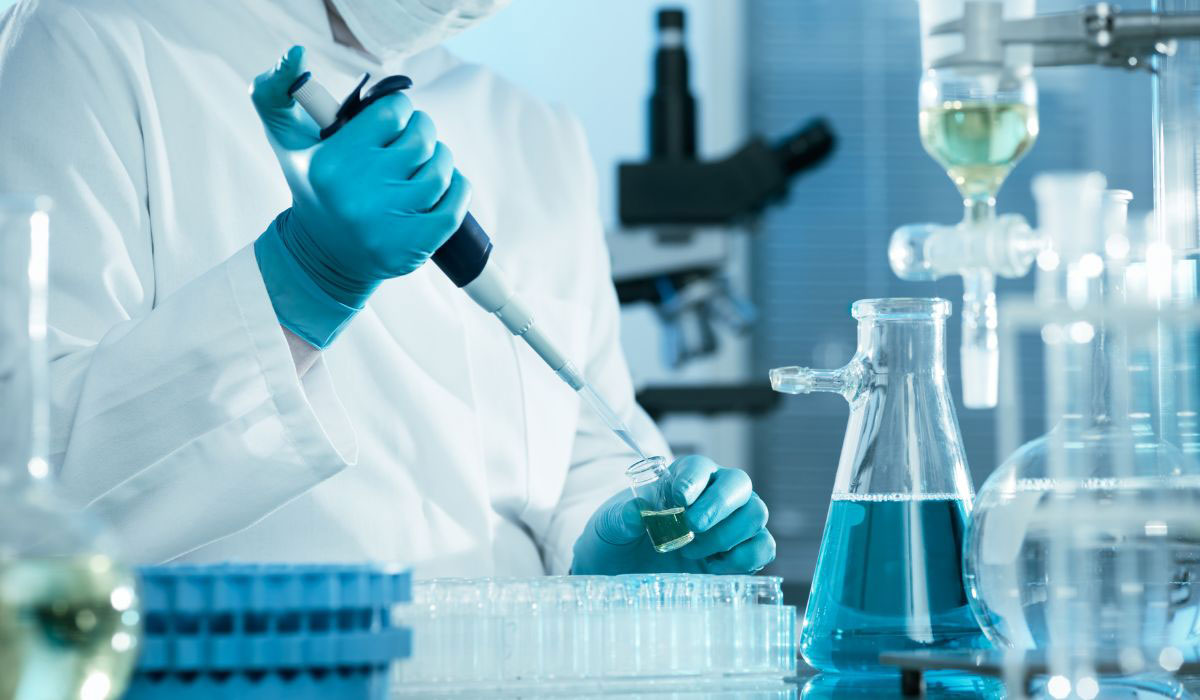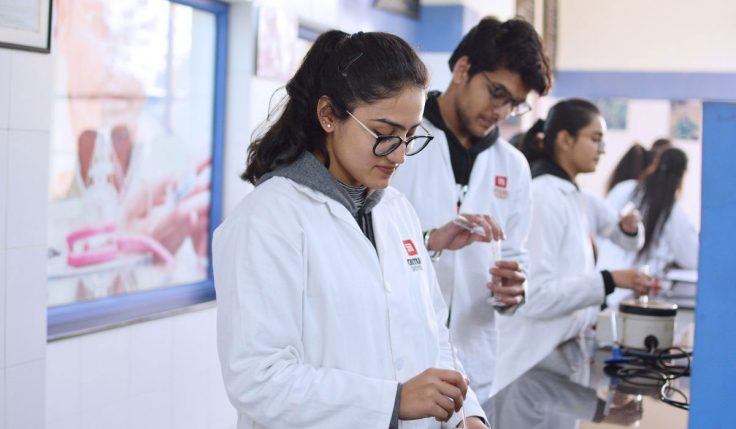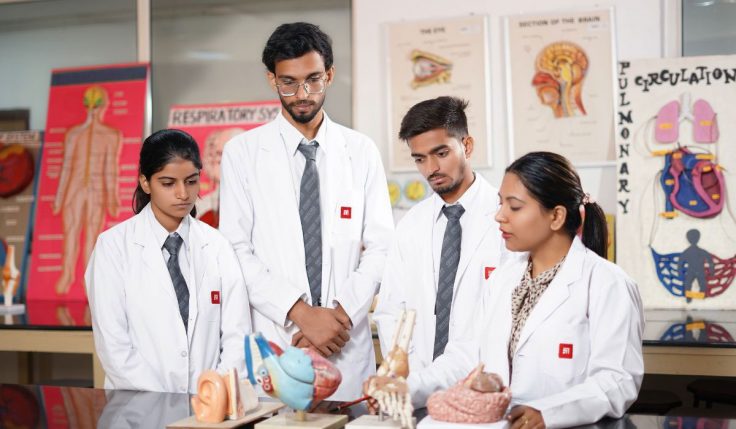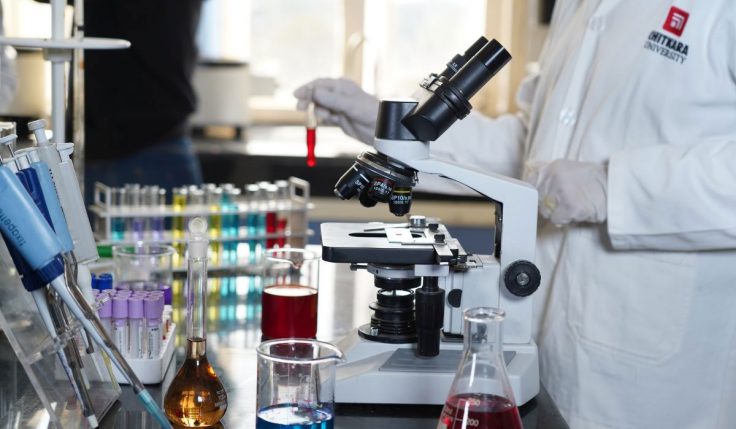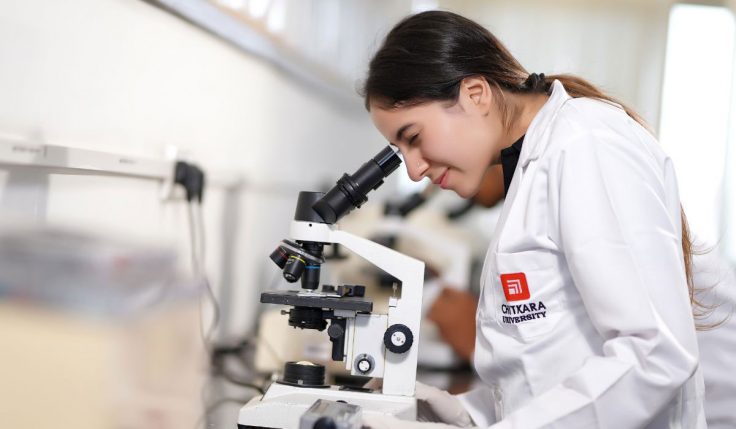BSc MLT (Bachelor of Science in Medical Laboratory Technology) is an important stepping stone for those who want to enter the healthcare industry as regards the focus on diagnostics and laboratory work. This program arms students with a solid skill set in the performance of all crucial tests and analyses that help in patient diagnosis and treatment. Here are seven key skills you will acquire in the BSc Medical Lab Technology program:
Laboratory Techniques
Core Competence:
Within the BSc Medical Laboratory Technology program, several laboratory techniques are conducted as practical classes. You would learn to conduct complex tests on tissues, blood, and other fluids found in the body with the use of high-end equipment. All these are fundamental skills that will lead to making accurate diagnoses in a number of medical conditions.
Proficiency in Handling Laboratory Instruments
Technical Skills:
A critical element of the BSc MLT course is training in the operation and maintenance of state-of-art apparatus, such as microscopes, centrifuges, and automated analyzers. It is fundamental knowledge to enable one to operate and troubleshoot the use of such apparatuses in the lab to achieve efficient and effective laboratory practices.
Biomedical Science Knowledge
Theoretical Know-how:
The curriculum provides a comprehensive avenue to study such topics as hematology, microbiology, biochemistry, and pathology. It, therefore, opens up a wide scope of knowledge that teaches students the science behind human health and disease-making appropriate choices in the laboratory.
Analytical and Critical Thinking
Problem-Solving Skills:
The students are taught to critically interpret the test results and assimilate the data precisely. It includes finding any abnormality, checking the results, and giving a diagnosis and being part of the decision-making process, which demands strong analytical ability.
Attention to Detail
Accuracy and Precision:
Accuracy is the utmost requirement of a medical test. The BSc Medical Lab Technology program lays an immense emphasis on the accuracy of every lab work-right from taking the tests to recording and interpreting data so that it reduces the error margin and attains better accuracies.
Laboratory Management
Organizational Skills:
Not only technical skills but also laboratory management forms a part of the course. It teaches a student to organize and maintain a lab, inventory managing, data management, and health and safety standards.
Communication and Teamwork
Interpersonal Skills:
Good communication skills are key to practice with healthcare providers and report test results. The program directs such skills, so the graduates will be able to form a healthcare team and provide support to patient care.
Conclusion
Bachelor in Medical Laboratory Technology gives the student a practical skill set that would be needed to really succeed in a career profession in the healthcare. From mastering intricate laboratory techniques to developing good communication skills, a graduate from this program will be an invaluable asset to a medical setting. From the interpretation of critical data, medical lab technologists can provide essential information for diagnosing and treating disease to patients; hence, it is an excellent investment in all hopes-to-be in healthcare service. Whether one wants to work in hospitals, research labs, or diagnostic centers, the BSc MLT program is the one that would form a very rewarding career.
Explore a dynamic career with Chitkara University offering a 4-year Bachelor’s degree in Medical Laboratory Science
The hands-on bachelor’s in medical laboratory science program is thoughtfully designed to integrate intensive practical training with theoretical classroom courses; the trainee would gain expertise and the ability to build excellence in diagnostic testing and analysis. Chitkara School of Health Sciences
Programs Overview
Our 4-year BMLS course is an integrated health professional program leading to the diagnosis, treatment, and prevention of diseases with intense training in chemical, hematological, immunologic, microscopic, and bacteriological diagnostic analyses. Key subjects include Clinical Endocrinology & Toxicology, Diagnostic Molecular Biology, and Advanced Diagnostic Techniques.
Curriculum and Internship
Hands-on Experience:
Dedicate a good amount of time to practical work through specialized labs incorporating latest technology, so you become thorough with diagnostic test procedures. Augmenting our curriculum is the one-year compulsory rotatory internship within the Fortis Healthcare Network to expose you further to the working world.
Internship:
The industry internship forms an intrinsic part of the program and is geared to put you into a real-world laboratory environment, where you learn firsthand about the working dynamics of the world of industry.
Career Paths
A Bachelor’s in Medical Laboratory Science qualifies you for diverse career paths within the hospital labs, industrial research, forensic labs, and much more. Career roles include:
- Cytology Technologist
- Forensic Technologist
- Haematology Technologist
- Histopathology Technologist
- Phlebotomist
Program Highlights
Industry-Endorsed Curriculum:
Our Bachelor in Medical Laboratory Science program boasts an industry-aligned syllabus focused on the latest innovations, ensuring acquisition of skills needed to succeed and excel. Partnerships with key industry players elevate learning and further career avenues considerably.
Also, read this blog: From Theory to Practice: The Essentials of Laboratory Science
Outstanding Faculty:
Learn from a team of experienced and highly qualified faculty members bringing professional experience and innovative research insights to the classroom. Their guidance is pivotal in shaping and achieving your career aspirations.
Future Opportunities
After graduation, one can enhance their credentials through the Master of Medical Laboratory Sciences under the Fellowship scheme, covering tuition, academic fees, and living stipend.
Eligibility
The minimum eligibility requirement shall include 10+2 with Biology or any vocational course in MLS/MLT with at least 50% marks. Admission will be through Chitkara University Design and Aptitude Test (CUDAT), and a personal interview with proper weightage to valid UCEED scores.
